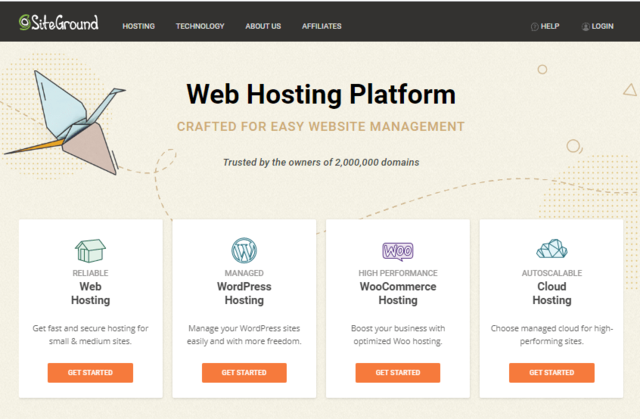Are you struggling with slow website speed? If so, you're not alone. In this article, we will explore the impact of shared hosting versus dedicated resources on your website's speed. We'll explain the basics of shared hosting and the power of dedicated resources, as well as the factors that can affect website speed in shared hosting.
By the end, you'll have a better understanding of the benefits of dedicated resources and how they can optimize your website's performance. So let's dive in and make the choice that suits your needs!
Key Takeaways
- Shared hosting can lead to slower website loading times and decreased performance due to the sharing of server resources with other websites.
- Dedicated resources in a dedicated hosting plan ensure faster loading speeds and improved performance for a website.
- Traffic congestion issues can occur in shared hosting, causing slower website loading times and poor user experience.
- Upgrading to a dedicated hosting plan with exclusive access to server resources can avoid traffic congestion issues and optimize traffic optimization for high-traffic websites.
Shared Hosting: Understanding the Basics
Shared hosting is a popular choice for many website owners due to its affordability and convenience. When it comes to understanding scalability, shared hosting refers to a hosting environment where multiple websites share the same server resources. This means that your website will be hosted alongside other websites on the same server. While this can be cost-effective, it also means that the resources are distributed among all the websites on the server.
Performance comparisons are an important aspect to consider when choosing a hosting option. Shared hosting may not provide the same level of performance as dedicated resources. Since the server resources are shared among multiple websites, the performance of your website can be affected by the traffic and resource usage of other websites on the same server. This can result in slower page load times and decreased overall performance.
However, shared hosting can still be a good option for small websites or those with low to moderate traffic. It is important to choose a reliable hosting provider that can manage the resources effectively and ensure optimal performance for your website. Understanding the scalability and performance comparisons of shared hosting will help you make an informed decision about the hosting option that best suits your website's needs.
The Power of Dedicated Resources for Website Speed
Utilizing dedicated resources can significantly enhance the speed of your website. When it comes to website optimization, a dedicated server can make a world of difference. With a shared hosting plan, you're sharing server resources with multiple other websites, which can lead to slower loading times and decreased performance.
However, with a dedicated server, all the resources are exclusively dedicated to your website, ensuring faster loading speeds and improved overall performance. By investing in a dedicated server, you eliminate the risk of other websites hogging the server's resources, which can result in slower response times for your visitors. With dedicated resources, your website's performance is not affected by other websites' traffic spikes or resource demands. This means that your website can handle a higher volume of traffic without experiencing any slowdowns or crashes.

In addition to faster loading times, a dedicated server also allows for greater customization and control over your website. You have the freedom to install any software or applications that you need to optimize your website's performance. Furthermore, you can configure the server to meet your specific requirements and scale it as your website grows.
Factors Affecting Website Speed in Shared Hosting
When it comes to shared hosting, there are two key factors that can significantly impact your website speed: server resource limitations and traffic congestion issues. Server resource limitations occur when you have to share the same server resources with other websites. This can result in slower loading times and decreased performance.
Additionally, traffic congestion issues can arise when multiple websites on the same server experience high levels of traffic. This can lead to slower response times and potential downtime for your site.
Server Resource Limitations
If you choose a shared hosting plan, you may experience server resource limitations that can affect your website speed. Shared hosting means that you are sharing server resources with other websites on the same server. This shared environment can lead to slower server performance and limited resource allocation for your website.
Since multiple websites are using the same server resources, there is a possibility that your website may not get enough CPU power, memory, or bandwidth to handle increasing traffic or complex tasks. This can result in slower loading times and decreased website performance.
It is important to consider these limitations when choosing a hosting plan, especially if your website requires high server performance or resource-intensive applications.
Traffic Congestion Issues
To avoid traffic congestion issues, consider upgrading to a dedicated hosting plan. With shared hosting, multiple websites share the same server resources, causing network congestion during peak traffic periods. This can lead to slower website loading times and poor user experience.

By upgrading to a dedicated hosting plan, you will have exclusive access to the server resources, ensuring optimal traffic optimization. With dedicated resources, your website will be able to handle high volumes of traffic without any slowdowns or interruptions.
This is especially important if you have an e-commerce website or a blog with a large number of visitors. Take control of your website's performance by choosing a dedicated hosting plan and enjoy faster loading times, improved user experience, and decreased network congestion.
Exploring the Benefits of Dedicated Resources
Exploring the benefits of dedicated resources, website owners can expect faster loading times and improved performance. By opting for dedicated servers, you're ensuring that your website has its own dedicated resources, such as CPU, RAM, and disk space. This means your website doesn't have to compete with other websites for these resources, resulting in a smoother and more efficient performance.
One of the major benefits of dedicated servers is the impact it has on website loading time. With dedicated resources, your website can handle more simultaneous user requests, resulting in faster loading times. When your website is hosted on a shared server, it has to share resources with other websites, which can slow down your website's loading time. However, with dedicated resources, your website can handle a higher volume of traffic without compromising on speed.
Moreover, dedicated servers offer enhanced security for your website. Since you're the sole owner of the server, you have full control over its security measures. This allows you to implement advanced security protocols and protect your website from potential threats.
Common Challenges With Website Speed in Shared Hosting
When it comes to resource sharing in web hosting, there are a few drawbacks you should be aware of. Firstly, sharing resources with other websites can lead to decreased performance and slower loading times for your own website. Additionally, you may also experience limited control over your resources, as the hosting provider may prioritize other websites over yours.
Resource Sharing Drawbacks
Resource sharing in shared hosting can lead to slower website speeds due to the limitations of shared resources. When you opt for shared hosting, you are sharing resources such as CPU, RAM, and bandwidth with other websites hosted on the same server. This can have several disadvantages that directly impact your website's performance.

First, the increased traffic or resource usage on one website can affect the performance of other websites on the server, causing slower loading times. Additionally, if a website on the server experiences a sudden surge in traffic or uses up a significant amount of resources, it can hog the shared resources, leaving limited capacity for other websites. This can result in slower website speeds and even occasional downtime.
Therefore, it's important to consider the drawbacks of resource sharing in shared hosting when evaluating the impact on your website's performance.
Performance Limitations of Sharing
One of the limitations of sharing resources in shared hosting is the potential for slower website speeds. When you opt for shared hosting, you share server resources with other websites, which can impact the performance of your own site. This can be particularly problematic when it comes to performance optimization and ensuring a smooth user experience.
Shared hosting environments often have limited resources allocated to each website, which can lead to slower loading times and decreased overall performance. When multiple websites are competing for the same resources, it can result in a bottleneck effect, causing delays in processing requests and serving content to visitors.
Slower website speeds can have a direct impact on user experience. Visitors expect fast-loading websites, and if your site takes too long to load, they may become frustrated and leave. This can lead to a higher bounce rate and lower conversion rates, ultimately affecting your business's bottom line.
To mitigate the performance limitations of sharing resources in shared hosting, it's important to optimize your website's performance through various techniques such as caching, image optimization, and code optimization. By implementing these strategies, you can help improve website speed and provide a better user experience for your visitors.
Optimizing Website Speed With Shared Hosting
To improve your website speed, you should consider optimizing it while using shared hosting. Shared hosting is a popular choice for many website owners due to its affordability and ease of use. However, it is important to understand the differences between shared hosting and other hosting options like cloud hosting and VPS hosting.

When comparing shared hosting vs. cloud hosting, the main difference lies in the infrastructure. Shared hosting involves multiple websites sharing the same server resources, including CPU, RAM, and disk space. This can lead to slower website speed during peak traffic periods when other websites on the same server are experiencing high levels of activity. On the other hand, cloud hosting utilizes a network of servers to distribute resources, providing better scalability and performance.
Similarly, shared hosting vs. VPS hosting also has an impact on website speed. With shared hosting, your website shares resources with other websites, which can result in slower loading times. In contrast, VPS hosting provides dedicated resources, allowing your website to perform at a higher speed.
By optimizing your website while using shared hosting, you can make the most of the resources available and improve your website's speed. This can include implementing caching mechanisms, optimizing images and scripts, and minimizing HTTP requests.
How Dedicated Resources Can Boost Website Performance
If you want your website to perform at its best, dedicated resources can greatly enhance its performance. By opting for dedicated resources, you can significantly improve your website's speed and overall performance. Shared hosting may be cost-effective, but it often comes with limitations that can affect your website's speed and functionality.
With dedicated resources, you have exclusive access to a server, which means your website doesn't have to compete for resources with other websites. This allows for faster loading times, smoother user experience, and improved overall performance.
When you have dedicated resources, you have more control over the server configuration, allowing you to optimize it specifically for your website's needs. You can allocate resources such as CPU, RAM, and storage as required, ensuring that your website runs efficiently. Additionally, dedicated resources offer better security measures, protecting your website from potential threats.
Moreover, dedicated resources provide scalability, allowing your website to handle increased traffic and data without compromising speed or performance. This is particularly beneficial for growing businesses or websites with high-demand services.

Making the Choice: Shared Hosting or Dedicated Resources for Speed
When considering options for your website's performance, you may find it helpful to weigh the benefits and drawbacks of shared hosting and dedicated resources. One important factor to consider is the impact of shared hosting on website security. Shared hosting means that your website is hosted on a server with other websites. While this may be cost-effective, it also means that if one of the websites on the server is compromised, there is a risk that your website could be affected as well.
On the other hand, dedicated resources provide a higher level of security as you have your own server. This means that you have more control over the security measures implemented and can better protect your website from potential threats.
Another aspect to evaluate is the cost effectiveness of dedicated resources for website speed. Dedicated resources allow you to have more control over your website's resources, such as CPU, memory, and bandwidth. This can result in faster website loading times and improved overall performance. However, dedicated resources can be more expensive compared to shared hosting. It's important to consider your website's specific needs and budget to determine if the cost of dedicated resources is justified by the potential speed improvements.
Frequently Asked Questions
What Is the Difference Between Shared Hosting and Dedicated Resources?
Shared hosting and dedicated resources differ in performance. Consider factors like website traffic, security needs, and budget when choosing between them. Shared hosting is less expensive, but dedicated resources offer better speed and control.
Can Shared Hosting Negatively Impact Website Speed?
Shared hosting can negatively impact website speed due to resource sharing with other websites. VPS offers dedicated resources, improving speed. Additionally, server location affects speed, with closer servers generally providing faster loading times.
How Do Dedicated Resources Improve Website Speed?
Dedicated resources improve website speed by maximizing performance. By having exclusive access to server resources, your website can run faster and handle more traffic efficiently, resulting in an improved user experience.
Are There Any Downsides to Using Shared Hosting for Website Speed?
Using shared hosting for your website may have drawbacks and limitations when it comes to speed. Limited resources and the potential for slower load times are some of the downsides you may experience.

How Can I Optimize Website Speed When Using Shared Hosting?
To optimize website speed when using shared hosting, use website speed optimization techniques like enabling caching. Caching is important as it helps store static content, reducing the load on the server and improving website performance.
Conclusion
So, when it comes to website speed, choosing between shared hosting and dedicated resources can make a significant impact. Shared hosting may be a cost-effective option, but it can sometimes lead to slower website speeds due to resource limitations.
On the other hand, dedicated resources offer faster performance and improved website speed, but they come at a higher cost. Ultimately, the choice depends on your specific needs and budget. Consider your website's requirements and weigh the pros and cons before making a decision.

